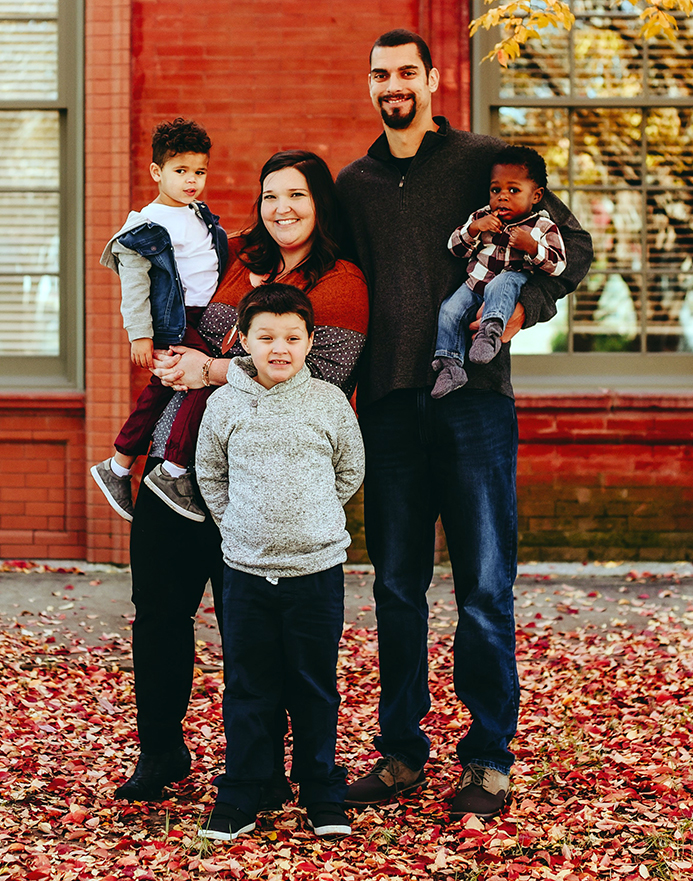
Editor’s note: May is foster care awareness month.
LITTLE ROCK, Ark. (BP) – “We will not let the state be more family-focused than the church.”
That charge from Derek Brown, executive director of the Arkansas Baptist Children’s Homes and Family Ministries (ABCH), has become a driving point for the organization since December 2018, when Brown was named to his current role. When he looked around the Children’s Home campus, he saw unfulfilled potential to help children grow in a loving family, keep sibling groups together and ultimately aid in the process of reunification.
“We wanted to know what could be accomplished through our resources that can’t be done in other places,” said Brown, who was with the Children’s Home for six years prior to becoming executive director and so had time to consider those possibilities.
The Family First Prevention Services Act, a bipartisan effort ultimately signed into law by former President Donald Trump in February 2018, worked “to ensure that children in foster care are placed in the least restrictive, most family-like and appropriate settings.” Its ultimate goal is to prevent the need for foster care through such services as substance abuse prevention, teaching parenting skills and aiding in parent-child reunification.
The reality is that the need for foster care has only grown since the bill became law. Currently an estimated 400,000 children in the U.S. are in the foster care system. Those figures dipped during the COVID-19 shutdown last year, but experts agree that was largely due to school shutdowns, which removed teachers and coaches as reporters of abuse.
In Pulaski County, where Little Rock is located, 416 children needed foster care in March 2020. That number jumped to 686 in May of this year. Statewide, those numbers rose from 4,292 to 4,785, Brown said.
May is National Foster Care Month while June is celebrated as National Reunification Month. In addressing both, the ABCH’s move toward foster care and reunification after more than a century of residential care began about five years ago, said Charles Flynn, director of operations.
That included recruiting, training and supporting foster families who would then work through the Arkansas Division of Children and Family Services (DCFS). Those initial placements came through Central Baptist Church of North Little Rock.
Ashley Sanders and her husband Ken were among four families to step forward following a presentation on foster care at the church.
“After it I felt unsettled,” Ashley Sanders said. “I felt like God had provided us with this home that at the time had two empty bedrooms. I’d walk by and think ‘What a waste.’”
The couple embarked on their foster care journey that brought several children through their home. Two of them, Elijah and Corey, joined the Sanders family through adoption.
Sanders said she was intimidated by it all at first, but received a newfound boldness once she got involved. “Once you know God is piecing it all together, that fear factor leaves,” she said.
Last year, the ABCH completed the transition of its campuses to a foster-care model. Still with the goal of reunification, the spaces also allowed for sibling groups of up to nine to stay together.
“When you consider the losses children in foster care experience, we thought this was one less loss we could provide,” Brown said. “Our board and partners grew excited when we talked to them about these changes.”
The pandemic, of course, brought unique challenges. Now, foster parents who had accepted sibling groups remained with them during quarantine.
“They showed tremendous resilience during that time,” Brown, a licensed professional counselor, said. “It was a testament of God’s grace, His provision of strength.”
The 10 on-campus homes can house 50-60 children plus their foster parents. In the ABCH’s larger foster care community, that number of children who can be served more than doubles.
In addition, at the beginning of May the ABCH responded to a statewide need for a private adoption ministry. Connected Adoptions, a ministry of the organization, will continue as a resource for pregnancy care centers but also work with expectant mothers and adoptive families. Support for mothers will continue after birth should they choose to keep their child or make an adoption plan.
Flynn said that although the Family First Prevention Services Act impacted his organization’s emphasis change to foster care/reunification, the transition was already taking shape. Brown had been in talks with Mischa Martin, a member of First Baptist Sherwood, Ark., and DCFS director, about ABCH’s desire to be more mission-driven than facilities-driven.
Brown said two overarching goals propel the ministry: keeping siblings together and permanency, or reunification. The fuel continues to be a calling for the church to be the first consideration when it comes to keeping families together.
“I get to represent Arkansas Baptists in one of the most precious ministries we can offer, to care for the fatherless,” he said. “It’s as close to God’s heart as any ministry. We work in extraordinary ways on a regular basis and because of that, we get to see God. To see a child reunited with his or her parent or placed in a new family through adoption is an incredible picture of God’s redemption.”
















